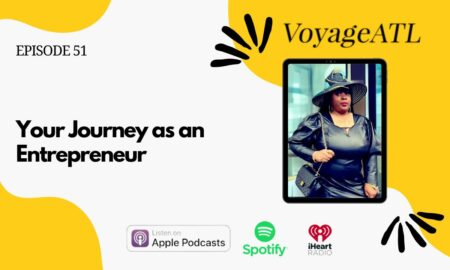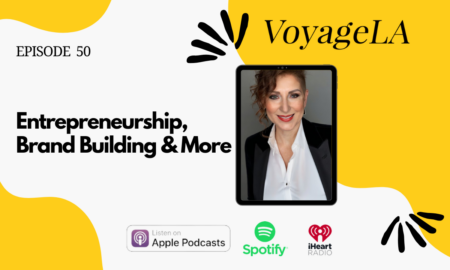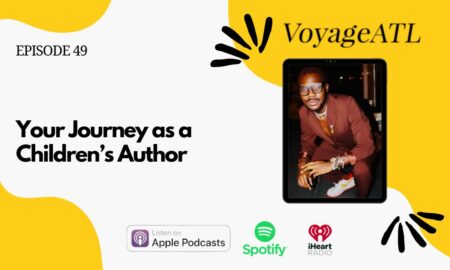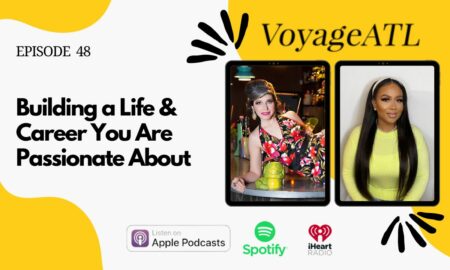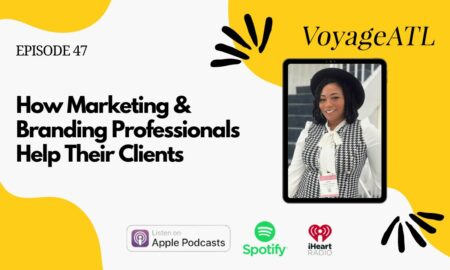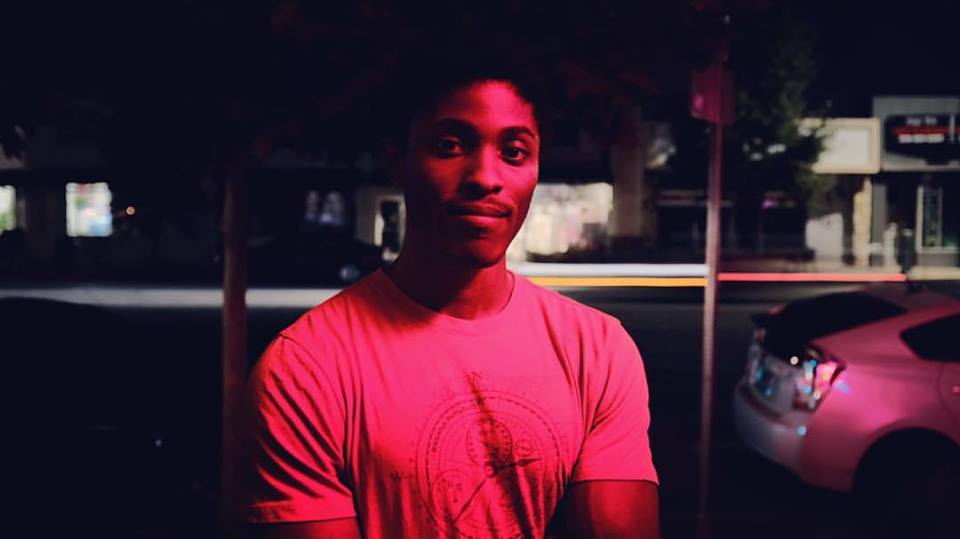

Today we’d like to introduce you to Nathan DuConge.
Nathan, can you briefly walk us through your story – how you started and how you got to where you are today.
I was born in Gaithersburg, Maryland but moved to Atlanta when I was six months old so Atlanta’s always been home for me. Throughout childhood, hanging out with friends and going on random adventures to wherever we could walk, bike, or catch a ride was my main thing. But I also lived in the world of watching movies, TV shows and playing video games. Most people I know in film tend to grow up watching classics. I, on the other hand, grew up on anime, manga, movies, and video games. Storytelling has always been with me throughout my life. I knew I wanted to be a movie director since the first grade when I read a Steven Spielberg biography. It talked about how he created this beautiful world of dinosaurs in an amusement park – yes, Jurassic Park.
There was a LEGO set I never ended up getting that had a LEGO Spielberg and a green T-Rex on a movie set and it came with a stop-motion camera and software that I wanted so badly. Instead, I would take a digital camera my parents had and create stories with the LEGOs I did have using pictures. Later, I started learning stop-motion and would take a picture frame-by-frame to make an animation. I was always fascinated by stop-motion and still am, but I later moved on to live-action filmmaking with friends. Where we would get together and make videos of us creating characters and reenacting scenes from movies we loved.
That being said, being a nerdy black kid from the South with dreams of being a movie director seemed like a pipe dream at the time. People would often try to discourage me from pursuing my interests and transforming it into a career. It was either considered “not a real job” or “it seems like it’s too hard to make it”. I still hear it, but I don’t have to tune out the noise as much anymore. At the time though I listened to those people and decided to bring my talents to another form of storytelling: video game development. I began making video games when I was 13 and did it throughout high school. During that time I made a few failed game projects that were never finished. The closest I came to finishing a video game was when I was making a game called “Hogwarts Online” (formerly known as “Hogwarts MMO”). I recruited a ragtag team of people all over the world to help out and we had thousands of users on the forum but ultimately we had to shut it down because it was still a massive copyright infringement even though it was free to play.
Shortly after my stint with video game development, I decided to pursue my love for filmmaking again after graduating Lakeside High School in 2012. I had made a few shorts for school projects during my time at Lakeside because any chance I could get to make a movie, I was always excited. The summer after graduation though was when I had my “moment of truth”: I got my first taste of the business. A friend of mine named Sunny Gangwal had seen my work and I had just wrapped up a feature-length Machinima using Grand Theft Auto IV titled “El Boxeador” so I was bored during summer vacation, looking for something to do. He pushed that we should make a movie together. Inspired, I went back home immediately and began writing a feature script that would later be known as “The Crucible” (not at all related to the Salem Witch trials story but that will come later). It was something wacky, fun, and wild that I would still love to make at some point but it involved teenage superheroes attending a prestigious superhero school and have to prove their worth by entering a “Crucible” tournament against other schools.
At the time, I was planning on making this with another ragtag crew of friends but the project became bigger than we ever imagined; we managed to catch the attention from some people who were involved in the Atlanta Film Industry. With the help of a production company known as Falling Tree Films, I began casting and pre-production for the movie. It was honestly a dream come true. I had always dreamed of the process of moviemaking but for the first time, I was really on a movie set. At the same time though, I was vastly inexperienced. We began filming right before I went off to start college and I had no idea what I was doing: I was used to shooting stuff with a small group of friends but this time I had to direct an entire cast and crew of professionals.
“Crucible”, which was later renamed “Intrepid Academy”, really became a life-changing process for me and really made my decision to want to be a filmmaker very critical. It ended up being transformed from a feature to a TV pilot, to a SAG New Media web series, but ultimately it never finished. It became overwhelming at times but I learned a vast amount about moviemaking that still led to me being excited about being a filmmaker. Throughout the journey, though I made a series of lifelong friends and collaborators: some of whom I still work with to this day (Patrick Walker is actually the lead in my current short, “Dr. Friday”). But I was also determined to never leave a project unfinished again. During my time at the University of Georgia, I really grew into my roots of becoming a filmmaker. I met more friends and collaborators who I bonded with and made more films with, but most importantly I gained mentors. UGA wasn’t a traditional film school experience: we didn’t have resources that most film schools have to make these big picture cinematic experiences nor did I have the money to go out and rent an Arri Alexa Mini.
At first, I used to be annoyed by this, but I’ve now been humbled by it. UGA gave me the best experience I could ask for in terms of growing as a filmmaker: it really pushed me to learn about storytelling and the mechanics of indie filmmaking. Because we didn’t have the fancy equipment, your work was really centered on story. I maximized my time there by taking every film class I could and worked as many different positions other than “director” as I could to learn everything about how sets work. How post-production worked. How casting and pre-production worked. I even learned 3D modeling and animation which led me into doing a VFX internship for The Walking Dead season 6.
Right before graduation, I made my last college short titled “Nirvana” (starring Erika Chase and Tre’ Lockhart from “Intrepid Academy”) which played at the Action on Film Festival in Los Angeles. At that point, I knew I was on a mission to move to Los Angeles and pursue my dreams of being a writer/director so I wanted to come out there with a movie. Since then I’ve worked various jobs and internships, but I started getting tired of it being so long since I actually made something. After my first year of living here, I decided to make my web series, “Eden”.
I was sitting in a Coffee Bean when the idea just poured right out of me and I couldn’t stop writing about these characters I saw in my head. They felt real to me. I was in a very weird place at that time because I was a little shaken up from a gig. My state of mind was very fragile and I was on high anxiety alert. So I envisioned this teenage girl who had divorced parents, moving to an unknown town in California after the divorce happens. She had these supernatural abilities that she didn’t know about through a lifelong bloodline of witch ancestry but they would be ignited when she got to Eden. But in Eden, there would be witch hunters. And they would be after her. This was going to be the new Salem Witch Trials. She would have no idea why at first, wondering if it’s the Southern California KKK until she discovers she has these powers. And when she does, what will she do with them? How will she cope in this world? A whole new breed of superhumans will be created so how will humankind react to something like this? Something they can’t quite understand? It’s the same topic of racism in the world: people who are racist fear and are unwilling to understand another’s culture because they look different.
The name of the character was Raven from the beginning. Like a blackbird with a purple mystical shine, searching for freedom. I was pulling influences from my own parent’s divorce, my own anxiety, my experience of going to college in a small town as someone from Atlanta, and my experiences of being a black man in the South. My own issues with identity. I wanted this girl to gain new friends, allies, experiences, and even villains that will shape her in her journey of adolescence to becoming who she will ultimately be.
“Dr. Friday”, my latest short film that I plan to make a feature film out of, is my expansion of the Eden Universe. I’ve always toggled with the idea of creating a universe, especially ones that deal with sci-fi, supernatural, and horror genres. This movie’s going to be a mix of all of that. But what I loved most about expanding the Eden Universe was that I wanted to create more stories dealing with teenage, accidental superheroes who became heroes (or villains) based on what path they chose based on their experiences living in that world.
And right now, I’m focusing on telling the stories of the persons of color who are having these experiences and lineage. For Eden, I did a lot of research of Native and Eskimo mythology and folklore because Eden is a birthplace of magic. Nature is very much at play with Eden as Raven’s powers are ignited through the wind spirits. Meanwhile, in Pottstown, GA (another fictional small town) there’s a supernatural venom brewing under the terrain of the town. The story follows ex-reporter Nick Spade as he investigates the town’s local disappearances of Black people; which is being caused by a supernatural venom that’s feeding on the bloodshed from victims of racism and hatred in the South.
We’re always bombarded by how great it is to pursue your passion, etc – but we’ve spoken with enough people to know that it’s not always easy. Overall, would you say things have been easy for you?
It wasn’t always a smooth road. There are a lot of peaks and valleys in the entertainment business when you meet people of all types from all over the world and Hollywood tends to have a way of creating a disenchantment when you actually work in it.
Hollywood isn’t glamorous by any means. But the reward is huge. Picture this: you see the stars posing on the red carpet for the Oscars, the movie premieres, and the director shouting “lights, camera, action!” sitting on a director’s chair with a megaphone while a dramatic scene takes place and everyone looks like they’re having a blast. In reality: directors are running around pulling their hair out because they’re running out of time, deals get canceled, scripts get put in development hell, your boss yells at you for sending the wrong document, and someone can get hurt on set. I’ve experienced a variety of struggles ranging from finances to having mental breakdowns but at the end of the day, I still love what I do.
When you’re creating art or making a movie, there’s always going to be those ups and downs no matter what. You get disappointed because you might’ve had a really great pitch but someone doesn’t buy it. You get rejected from another contest or writing program. You get rejected from film festivals. You even go to the Flying Biscuit and ask them to sponsor your TV show because it’s “going to be really cool!” but they say “thanks but no thanks kid” and give you a free biscuit (at least you get a free biscuit though). Rejection after rejection after rejection. But rejection isn’t actually a bad thing. For one, you tend to get used to it the more you experience it. The takeaway should be that, okay, maybe this person didn’t like it so how can you make it better? Bonus points if they give you feedback – that means they liked it enough to tell you what they thought could improve.
While rejection can be hard at times, you should always remind yourself of the goal: why you’re making art and stories in the first place. I struggled a lot in the beginnings of my filmmaking career because I was very young, naive, inexperienced. I was taken advantage of at times, lost a lot of money, scrambling to eat, but I never wanted to let those experiences deter me from the goal. I had moments in my career where I really questioned myself of whether or not I was meant to be a filmmaker. And you’ll always have those moments. If you can’t see yourself literally doing anything else and being happy with that, then you’re doing the right thing. I think a lot of us young filmmakers tend to be impatient, and patience is what I learned. But you still have to do the work.
So let’s switch gears a bit and go into the Acid Panda Productions story. Tell us more about the business.
Acid Panda Productions is actually a new title for my production company. For years, I haven’t really had an “official” production company of my own but I think it’s safe to say that Acid Panda has been with me since the beginning of my filmmaking career – even dating back to the LEGO movies I used to make. Currently, we specialize in making content that generates discussion. Great stories. Right now we’re focused and known for making movies and shows, but in the near future video games will be added as a division. As of now, there’s a 2D video game in development set in the Eden Universe, but more details will be released later.
“Dr. Friday” will be the first motion picture released under the Acid Panda banner and I couldn’t be more proud. We will be releasing on the THEA app under my good friend and mentor Steven Perez’s Barred Owl Productions channel. Barred Owl’s been with me since I made my college short “Nirvana” and I’m extremely excited to make more content with them in the future and collaborate with more filmmakers in that community.
What I am aiming to do for Acid Panda is continue to grow it to a position to where we can also produce content from new and current generations of underrepresented voices who have a burning desire to tell a story. Whether it’s indie video game projects, art, movies, TV shows, action figures, toys, I want to bring these visions to life. I want to create programs for kids who have an interest in making movies and help foster these brilliant minds with vast imaginations on their journey to becoming filmmakers.
Has luck played a meaningful role in your life and business?
The role of luck has played out pretty well in both life and business. I’ve been very fortunate and blessed that I’ve been able to make the movies and stories with the team of people who have surrounded me, and able to complete them. It’s a huge feat to do something like that. I have plenty of projects that haven’t seen the light of day. And I wouldn’t necessarily say it was due to bad luck, but instead, they were presented to me as challenges. Each challenge that you encounter is something that you have to take with a grain of salt and learn from that experience to grow and be better. Whether it’s financed, not completing a project or virtually anything in life.
Contact Info:
- Instagram: @natedawg900
- Facebook: www.facebook.com/drfridaymovie
- Twitter: @thedrfriday
- Other: https://www.thea.network/tvshow/206127






 Image Credit:
Image Credit:
Lucas Pitassi, Colson Peacock, Rapha Bola
Getting in touch: VoyageATL is built on recommendations from the community; it’s how we uncover hidden gems, so if you know someone who deserves recognition please let us know here.















